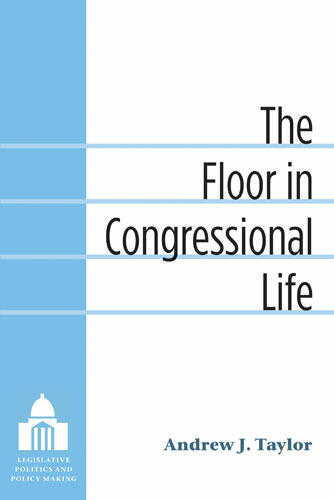The Floor in Congressional Life
Taylor offers a historically grounded comparative assessment of the rules governing proceedings on the floors of the U.S. House and Senate
Description
The House and the Senate floors are the only legislative forums where all members of the U.S. Congress participate and each has a vote. Andrew J. Taylor explores why floor power and floor rights in the House are more restricted than in the Senate and how these restrictions affect the legislative process. After tracing the historical development of floor rules, Taylor assesses how well they facilitate a democratic legislative process—that is, how well they facilitate deliberation, transparency, and widespread participation.
Taylor not only compares floor proceedings between the Senate and the House in recent decades; he also compares recent congressional proceedings with antebellum proceedings. This unique, systematic analysis reveals that the Senate is generally more democratic than the House—a somewhat surprising result, given that the House is usually considered the more representative and responsive of the two. Taylor concludes with recommendations for practical reforms designed to make floor debates more robust and foster representative democracy.
Andrew J. Taylor is Professor of Political Science at North Carolina State University.
Reviews
"Taylor's book makes a valuable contribution to the literature on congressional politics. It tackles an understudied aspect of legislative politics in a detailed and innovative way."
- Anthony Madonna, U. Georgia
—Political Science Quarterly
"Andrew Taylor’s fascinating book The Floor in Congressional Life asks novel questions about the House and Senate floors and delivers provocative answers. It elevates the chamber floors to an exalted place within the study of Congress by boldly asserting both their significance and the utility of studying them in isolation from other aspects of congressional behavior, such as committee or caucusmeetings. And it does so with an unusual blend of conventional analysis and big-picture normative arguments."
- Chris Den Hartog
—Congress and the Presidency

